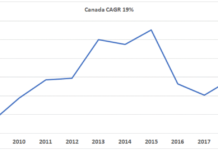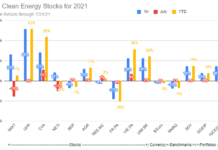As soon as gas prices rise, our nation becomes focused on energy. When they drop again, it falls off most consumers’ radar. Yet the importance of energy goes way beyond the cost of filling up your gas tank or paying your electric bill. In often-extraordinary ways, energy is interwoven into absolutely everything that we need to live or that we love to do. One of the most useful tricks I learned in engineering school is that to put any problem in perspective, it helps to ask what if things were at zero or infinity. So, to put things in perspective, let’s ask the question…
“What if energy were free and unlimited?”
· People would be able to travel at bargain-basement rates.
Yes, the cost of land vehicle transportation, which is so much of the focus in the press, would drop by 25%-35%[i]. But, in addition, airline costs would plummet as much as 50%. With this would come increased commerce and maybe even greater worldly understanding, as more people are able to travel.
· The world’s growing shortage of fresh water would largely disappear.
A huge amount of energy is expended on the conveyance, pre-treatment, distribution and wastewater treatment. Energy represents 30% or more of a typical municipal water facility’s expenses.[ii] With free energy, water could affordably be produced in abundance through the highly energy-intensive processes of desalination, wastewater purification or even direct extraction of water out of the air.
· Few in the world would go hungry.
Today, energy represents roughly 30-45%[iii] of the cost of the food we put in our mouths. Farming, transporting, processing, packaging and retailing all consume tremendous amounts of energy. The price of food would drop and the availability of food would skyrocket. With free and unlimited energy, food could be grown affordably just about anywhere, given that water would be readily available and, where necessary, climate-controlled growing facilities would become inexpensive to operate.
· Economic prosperity would reign.
The correlation between energy consumption and standard of living is strong.[iv] Everything that we use consumes energy to be produced and transported. For example, energy represents roughly 50% of ocean shipping cost and 40% of aluminum production cost. Impoverished people would have more food to eat and cleaner water, their homes would become more comfortable, and the price of almost everything they buy would go down instantly, boosting their quality of life.
So, the next time you hear complaints about high gas prices for our cars, remember that energy affects much more than just the cost of your ride to work or trip to the beach. With this perspective in mind, it doesn’t take much to figure out what things would look like in the opposite scenario, where energy becomes extremely expensive and scarce as fossil fuels diminish. It isn’t a matter of whether we will move away from fossil fuel consumption; it’s a matter of over what time period and with how much economic, national security and environmental pain along the way.
The free market will most assuredly create more alternatives as energy prices rise. If we could be confident that future increases in energy prices would be gradual over a long period of time and that global warming was not a concern, there would be little reason to take any particular action. But history has already shown us that changes in fuel prices are unlikely to be gradual. And the growing industrialization of major portions of the world such as China and India mean that world energy consumption is likely to grow roughly 50% over the next 20 years.
This leaves little doubt about the direction of energy prices in a world dependent mostly on fossil fuels. From a venture capital perspective, it is this type of disruption that makes cleantech a compelling area for investment. From a policy perspective, if we are faced with high energy prices for an extended period of time or if global warming creates environmental chaos, the negative impacts could be extraordinary and would impact virtually every part of our lives. But, on the positive side, an expensive gas tank fill up would soon be the least of our concerns!
David Gold is an entrepreneur and engineer with national public policy experience who heads up cleantech investments for Access Venture Partners (www.accessvp.com). This article was first published on his blog, www.greengoldblog.com.
[i] Transportation:
o Fuel costs alone are roughly 45% of airline operating expenses and that doesn’t include energy costs incurred for ground support vehicles or buildings used by airlines.
o Driving a car would cost 25%-35% less per mile. (@ $3.50/gallon gas cost).
[ii] Water:
· 3% of all energy consumption used to move, treat water. 30% of municipal water agency expenses are energy.
[iii] Food:
· 17% of all energy consumption goes to creating and getting food to the grocery story. http://www.p2pays.org/ref/08/07686.pdf
· As a result, roughly $240B per year is spent in the U.S. on energy costs related to food.
· This equates to roughly $2,000 per family unit per year http://
www.bls.gov/news.release/cesan.nr0.htm
· Those same family units spend roughly $6,400 per year on food.
· Thus, if energy were free, food could cost roughly 31% less. Then there is the energy cost of getting the food home, preparing it, clean dishes and disposing of waste.
[iv] World Prosperity
· Correlation to standard of living.
· Shipping costs.
· Aluminum costs.









Green energy really has a lot of benefits which is why we should invest in improving the technology today. The idea of being able to generate electricity from nothing but the earth’s renewable resources to power your entire home is truly freeing.